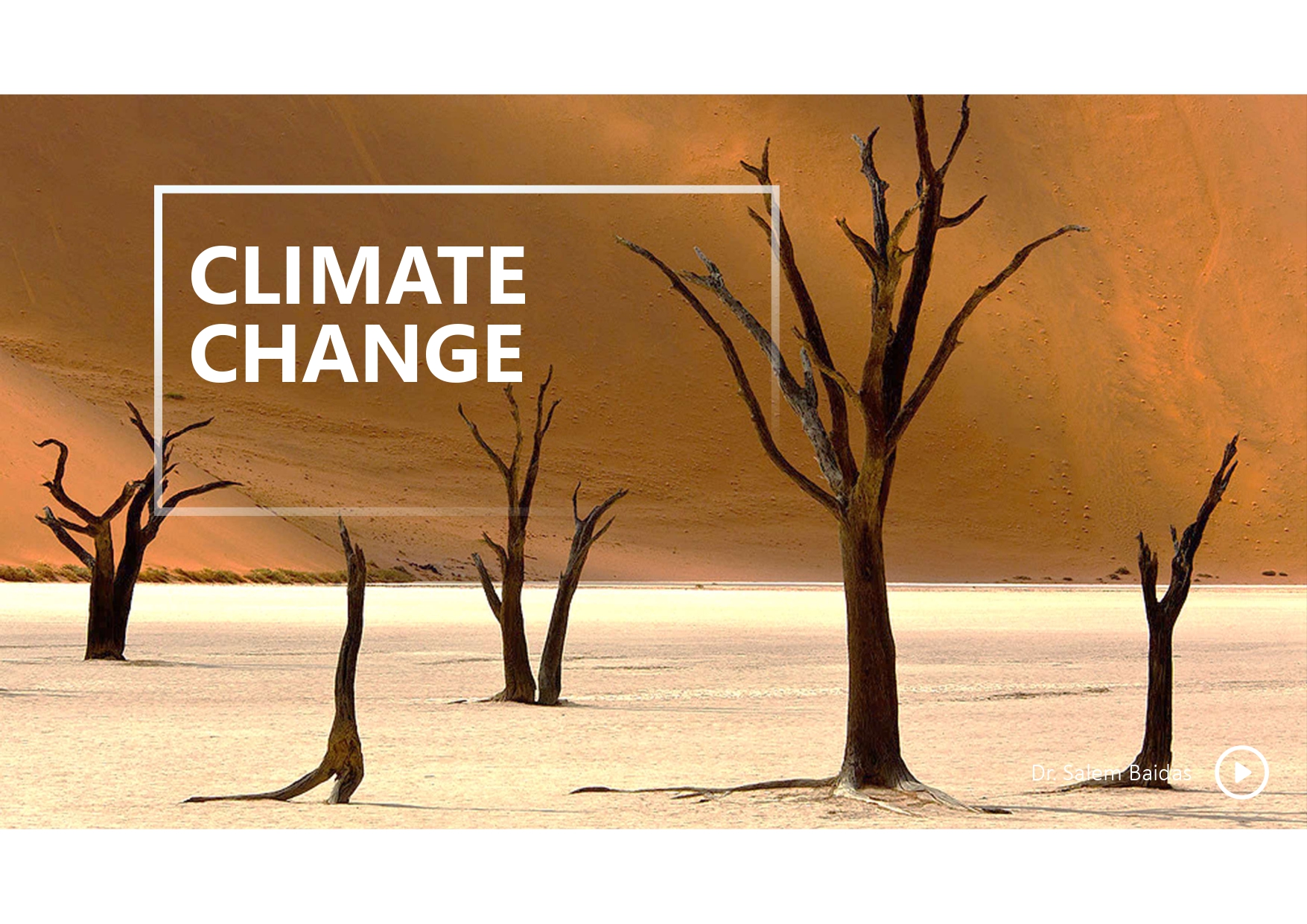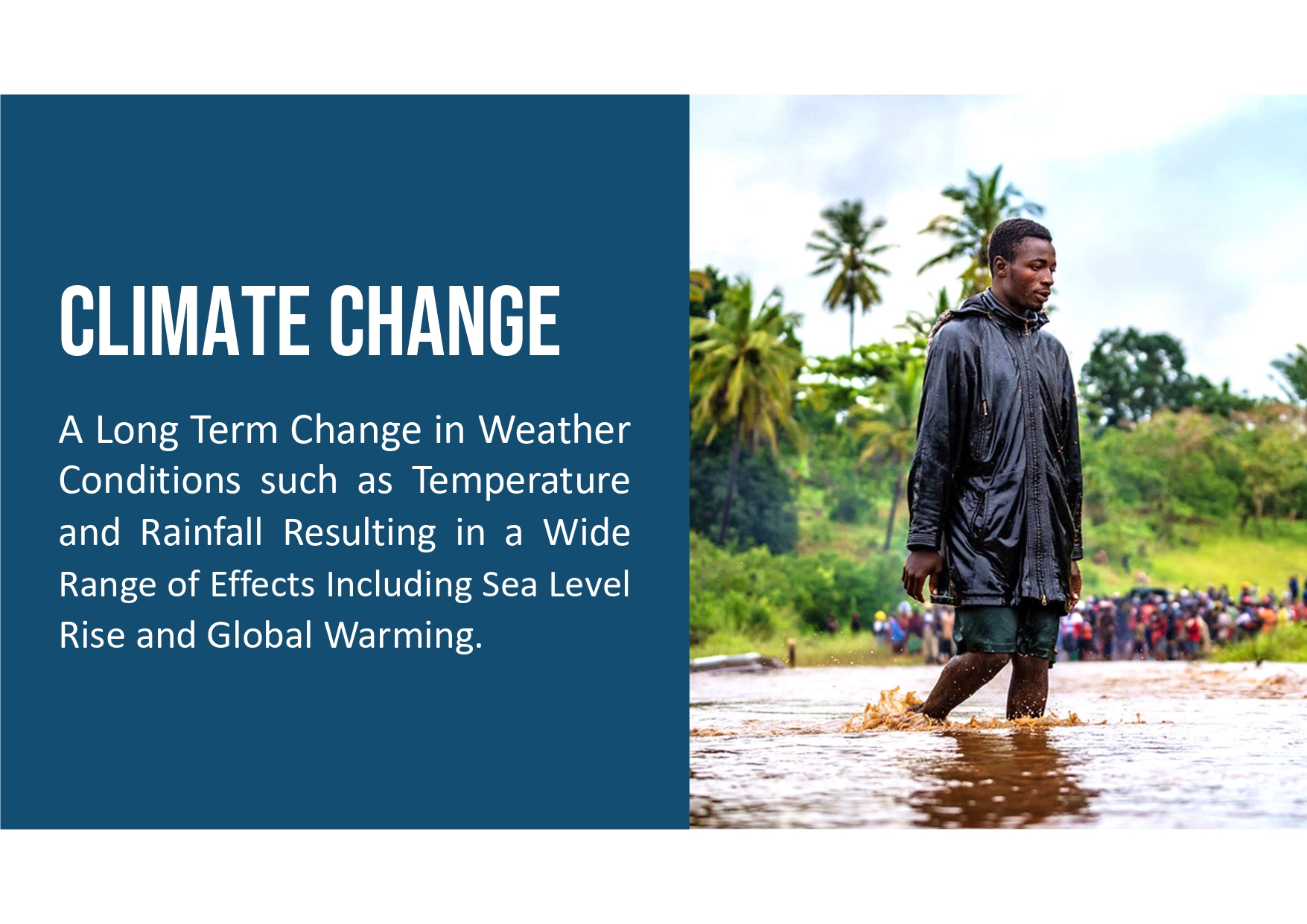Climate Change
January 2024 – Climate Change is a long-term change in weather conditions such as temperature and rainfall resulting in a wide range of effects including sea-level rise and global warming. The main cause of climate change is the high levels of Greenhouse Gases (GHGs) in the atmosphere trapping the sun’s heat causing global temperatures to rise. The main GHGs are carbon dioxide, methane, nitrous oxide, and fluorinated gases. Efforts to combat climate change, termed climate mitigation, have focused on reducing carbon emissions, as carbon dioxide is the primary greenhouse gas contributing to climate change. Climate change mitigation strategies include renewable energy, reforestation, pollution control, emission reduction, clean fuels, and carbon capture. In 1992, the United Nations Framework Convention on Climate Change (UNFCCC) was established to combat climate change by limiting global temperature increase.
In this slideshow, you will learn about the definition, cause, greenhouse gases, indicators, effects, mitigation, UN policy, and global statistics of climate change and global warming.



























